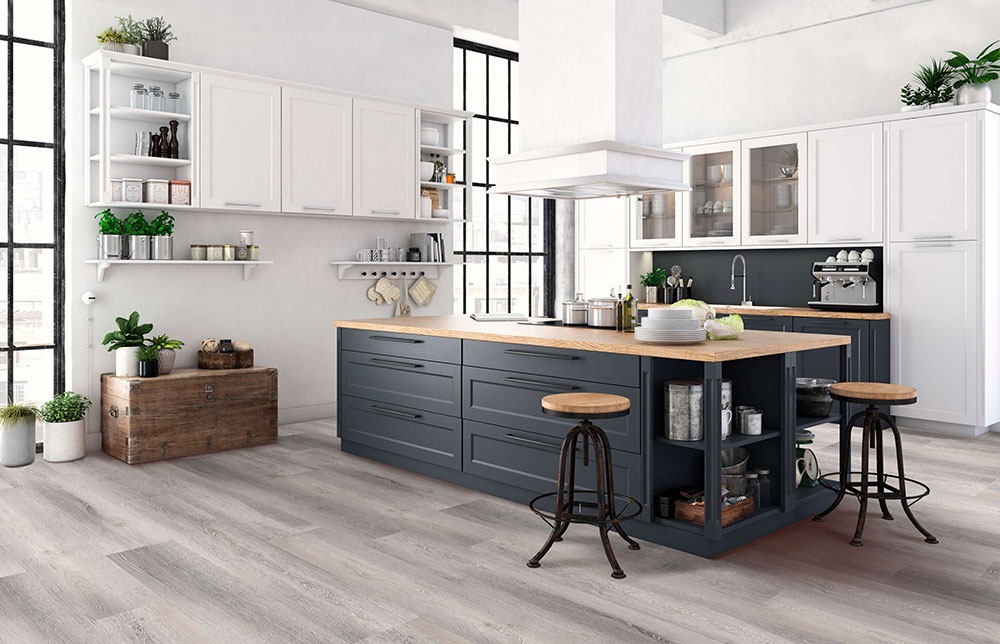Welcome to CondoCosmetics INC.
Welcome to CondoCosmetics INC.
Consider these tips before buying Vinyl flooring

Vinyl flooring is becoming very popular among homeowners as sales reach record highs. This is most likely due to vinyl sheet’s distinct advantages. Easy to set up and maintain, long-lasting, and comfortable to walk on are just a few of the advantages of this product.
But is Vinyl flooring right for you? Things to remember before choosing to go with vinyl. The following is a list of resources you may find useful.
PVC (polyvinyl chloride plastic) is the primary raw material used to make luxury Vinyl flooring (PVC). Vinyl tiles and planks are made by heating and pressing PVC into thin layers, then adhered together to form tiles or planks. Each piece of vinyl has a photo-realistic visual layer that depicts the appearance of hardwood, stone, or ceramic and a textured surface layer that mimics the feel of natural wood grains and minerals.
Vinyl is a versatile, cost-effective, moisture- and foot-traffic-resistant flooring option. Many people confuse luxury vinyl for linoleum and laminate, but there are significant differences in the construction of the two products that make them distinct.
It is possible to choose between the sheet and tiled Vinyl flooring. Water-resistant and simple to install, sheet flooring is laid out in 6 or 12 foot wide sheets. Vinyl tile flooring is available in 9- and 12-square-inch tile sizes and has the same look and feel as ceramic tile but at a lower cost. Planks of Luxury Vinyl Tile, which mimic the look of stone or wood, are typically 7 inches wide by 48 inches long.
Vinyl flooring can be finished in one of three ways, all of which result in a stunning final product. A vinyl no-wax finish. If you need something that won’t collect dirt or moisture, this is the best option because it’s so light. Finish: urethane Besides being more resistant to scuffing and dirt accumulation, this finish is easier to maintain and has higher wear resistance. Urethane finish: Enhanced These are some of the strongest and most durable floors on the market, and they can withstand the heaviest foot traffic, are scratch and stain-resistant, and retain their shine for a long time without constant maintenance.
Installing Vinyl flooring is typically less time-consuming than installing hardwood, tile, or other types of flooring. In the case of a floating vinyl sheet, no glue or staples are required. Peel and stick vinyl, on the other hand, can be applied to a subfloor that has already been prepared. When installing vinyl flooring, concrete, hardwood, and plywood can all be used as subfloors. Installation over existing vinyl is possible but not recommended if two or more layers are already in place.
Vinyl flooring is a very long-lasting flooring material, even in high-traffic areas. It has a ten-to-twenty-year lifespan when properly installed and cared for. As a result, vinyl is considered an excellent choice for high-traffic areas of your home. In addition, the wear layer on the surface of most vinyl floors resists scratches and stains. The wear layer of some vinyl products can be warranted for up to 15 years. How long a floor lasts depends largely on the quality of the material used.
In addition to the worn layer mentioned previously, printed vinyl tiles and sheets benefit from stain and spill resistance. Solid and composite vinyl tiles lack this level of surface protection. Consequently, they are more prone to stains and require regular stripping and polishing to maintain their shine.
Vinyl flooring is generally comfortable to walk on because it’s pliable. Walking on vinyl is more comfortable by adding a padded layer to some vinyl sheets and tiles. ‘Resilient’ is another term used to describe vinyl. As a result, the floors have a degree of springiness when you walk on them. The sound-absorbing properties of the Luxury Vinyl Tile make it a more soft surface to walk on.
Vinyl flooring is considered a great option for kitchens because of its long-term durability. Other places include:
Those who love Vinyl flooring’s versatility may argue that its design options are its greatest asset. Vinyl flooring comes in an almost infinite variety of colors and patterns, so the possibilities are truly limitless.